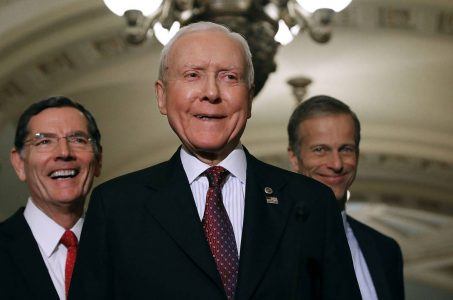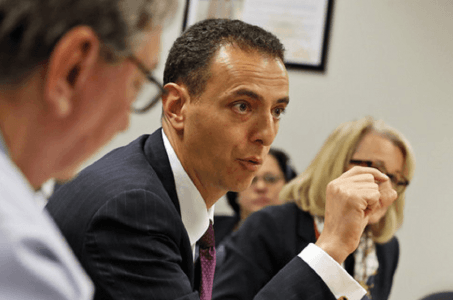Colorado Voters Don’t Cover The Spread, But Sports Betting Plan Proposition DD Ekes Out a Victory
Posted on: November 6, 2019, 02:45h.
Last updated on: July 26, 2022, 10:08h.
It was closer than polls indicated it would be, but Proposition DD, Colorado’s plan to legalize sports betting as a means of raising revenue for its water budget, was finally declared victorious on Wednesday afternoon.

Centennial State voters headed to the ballot box Tuesday to decide the fate of sports gambling there, and for much of Election Day, the tally was too close to call. During the day, it looked like Prop DD would be narrowly defeated. But late Tuesday, “yes” votes pulled slightly ahead of disapprovals, as Secretary of State Jena Griswold (D) said counting would linger into Wednesday.
Just before 3 p.m. Mountain time today, the Associated Press called the vote in favor of Prop DD supporters. As of this writing, 712,405 Coloradans voted in favor of the sports betting referendum compared to 692,377 dissenters, with all 64 of the state’s counties reporting, according to the secretary of state’s web site.
That works out to a margin of 50.71 percent “yes” and 49.29 percent “no.” The vote was far tighter than expected. As Casino.org reported earlier this week, citing a University of Colorado-Boulder poll, 62 percent of voters approved of the measure, with that survey highlighting broad support among Democrats, Independents and Republicans.
Colorado’s commercial casinos will now be able to offer sports betting,” said Dennis Ehling, a corporate attorney, in comments provided to Casino.org. “As a practical matter, though, most of those casinos will want and need to outsource the sports betting to an experienced operator – both for the land-based and the online sports betting markets – because operating a sports book is very different from other casino operations.”
The 17 operators of the state’s 33 casinos will apply for retail sportsbook licenses, with online and mobile platforms expected to follow soon thereafter. It’s expected that, at the earliest, Colorado will have sports wagering operational by May 1, 2020, and that the state will allow betting on college, professional and Olympic contests.
Joining The Party
Currently, 13 states have sports betting up and running. Colorado joins a group of five others and Washington, DC that have signed off on it.
“It is not clear how many operators will flow into the market, although many certainly will,” said Ehling. “The tax rate (10%) is fairly favorable (consistent with most other US markets), so it should be conducive to attracting operators.”
Among the gaming companies that were positioning for Prop DD to pass, were Century Casinos, Eldorado Resorts, Full House Resorts, Monarch Casino & Resort, and Penn National Gaming.
Smarkets, a London-based sportsbook and data provider that’s working with Full House in Colorado, cheered the news.
“It’s great news that the people of Colorado have legalized sports betting,” said Smarkets CEO Jason Trost in comments sent to Casino.org. “As more and more states adopt sports betting legislation, the industry will be brought further into the light and regulated in a more professional manner.”
Close Call
While Colorado is the latest state to join the sports betting party, the vote was surprisingly close, particularly when considering there was no formal opposition. There was an active “Yes On DD” campaign funded in large part by the gaming industry, but no comparable group on the other side.
There was bipartisan opposition to the sports betting referendum, with conservative groups voicing concern about the integrity of athletic competitions should Prop DD pass, while environmental groups criticized the plan, claiming it would be detrimental, not helpful, to Colorado’s water supply. However, those entities didn’t join together for a concerted “No On DD” effort.
Estimates indicate Colorado could generate up to $20 million in annual revenue from sports betting, meaning politicians there still need to find another $80 million to fully close a $100 million hole in the water budget.
Related News Articles
Most Popular
Sphere Threat Prompts Dolan to End Oak View Agreement
MGM Springfield Casino Evacuated Following Weekend Blaze
This Pizza & Wings Costs $653 at Allegiant VIP Box in Vegas!
Atlantic City Casinos Experience Haunting October as Gaming Win Falls 8.5%
Most Commented
-
VEGAS MYTHS RE-BUSTED: Casinos Pump in Extra Oxygen
— November 15, 2024 — 4 Comments -
Chukchansi Gold Casino Hit with Protests Against Disenrollment
— October 21, 2024 — 3 Comments -
VEGAS MYTHS RE-BUSTED: The Final Resting Place of Whiskey Pete
— October 25, 2024 — 3 Comments
















No comments yet